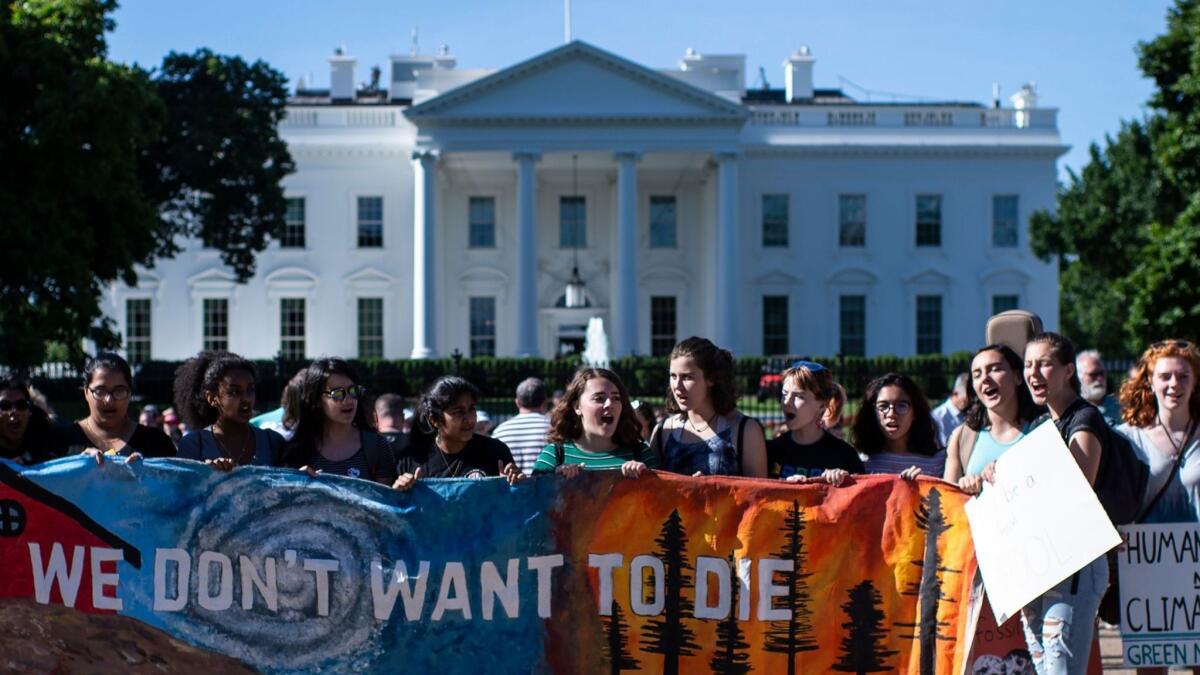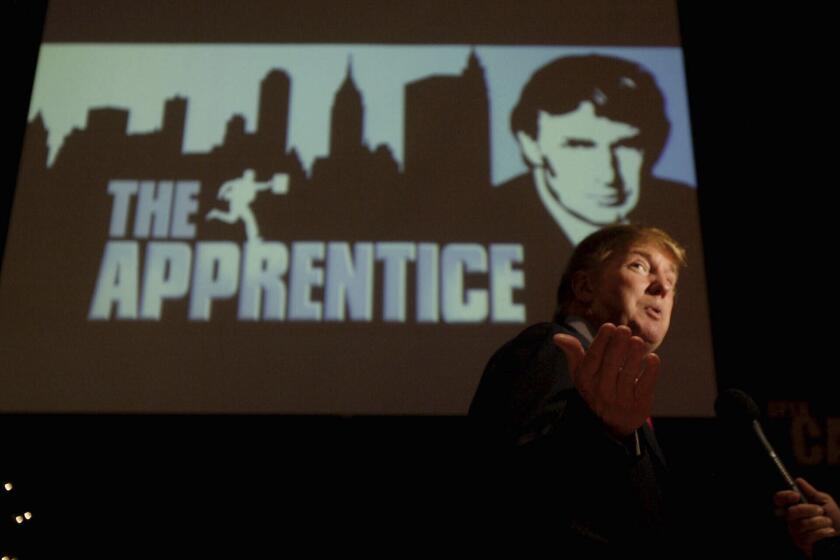The emerging media narrative on Gen Z is very, very wrong

Generation Z is finally — and, it seems, suddenly — becoming a topic of popular conversation. While generations are mutually constructed fictions, not natural phenomena, Gen Z’s members are most often understood to have been born between 1997 and 2012, making them 7 to 22 years old today. In January, the Pew Research Center defined its range; in March, the New York Times ran an ambitious multimedia survey of “America’s Most Diverse Generation”; Newsweek devoted this week’s magazine to dissecting the Zs.
As I rejoice alongside my fellow millennials that a new generation is on the verge of absorbing the bumbling intergenerational analysis older media makers have been all too happy to offer (we’d prefer they offer benefits), the nascent narrative about Gen Z — while so far kinder than it’s been to us — seems to miss the extraordinary capacity and creativity of this generation.
The thesis of Newsweek’s Gen Z issue is that this generation is a snooze. “If ‘entitled’ is the most common adjective, fairly or not, applied to millennials, the catchwords for Generation Z are practical and cautious,” one Newsweek piece states. “According to the career counselors and experts who study them, Generation Zs are clear-eyed, economic pragmatists.” Plagued by anxiety, they’re playing small, shelving their dreams, looking down.
Older generations can keep their pockets glued shut, their heels dug in, and their fingers waving if they want to. I’m with the kids.
I’ve been reporting on Gen Z for years and those aren’t the young people I see. Many are anxious, as many Americans of all ages are anxious. (Anxiety disorders are the most common mental health condition in the United States, and the percentage of its adults living with anxiety is growing year over year.) Some members of Gen Z are pragmatic, some desire stability, as members of each generation are and do. But such markers hardly convey the wholeness of who humans are and what we care about. They are not our animating values.
This generation, the first to come of age with an understanding that ecological collapse is not a dystopian movie premise but a real likelihood, is dedicated to public action and public service. Its members appreciate that their full lives will unfurl in a state of emergency. Driven by that knowledge, they look down, sure, but more often and more powerfully they look out; the Gen Z I know is comprised of bold and original thinkers.
When I note that Gen Z is dedicated to public service, members of elder generations not infrequently respond, “What wars have they ever fought and died in?” To which there are at least two answers: a) Afghanistan (and others to come I’m quite sure), and b) there is more than one way to fight.
The teens of the Sunrise Movement are fighting for a future with humans in it. Survivors of gun violence, led by the students of Parkland, Fla., are fighting for Americans’ safety. Like millennials before them, Gen Z is fighting for those living with mental illness and finding new ways to destigmatize and discuss suicidal thoughts. Far from flash-in-the-pan moments, these are long-term advocacy and community-building projects.
How fortunate we are that members of Gen Z are devoting their adolescences to correcting our country’s painful course, the conditions of which elder generations created or enabled by our inaction. It’s time for us to honor that work by seeing them deeply, hearing them clearly, and taking their values with the same seriousness we allow our own. More than 68 million Americans belong to Gen Z; in time, these young people will take many seats at the table. We should welcome them, not diminish or patronize them.
Last week, a coalition led by Los Angeles teenagers who had been organizing for years finally convinced the Los Angeles Unified School Board to pass a resolution ending district public schools’ “random search” policy, which had been in place since 1993. Before the resolution came for a vote, Tyler Okeke, the board’s non-voting student member, told his elder colleagues: “If you aren’t willing to be creative about policy changes to [address] issues, then you should not be in public service. This isn’t the place for you.” Playing small? Far from. Point well taken? Absolutely.
Some elder board members argued — at extraordinary length — that ending the “random search” policy, which critics say is ineffective, militaristic, and applied disproportionately to minority students, would leave schools with “nothing.” The kids’ hearts were in the right place, they said, but they hadn’t thought it all the way through. These arguments would have been more compelling if the resolution text didn’t explicitly give the supervisor’s office a full year to work with community organizations to identify and implement alternate safety strategies. While they do that work, the Los Angeles Unified School District’s “random search” policy will remain in place. Okeke, 17, wrote the resolution. It wouldn’t have hurt for his sparring partners to have read it.
As the student board representative, Okeke is the only Gen Z member on the LAUSD board, which makes policy for schools that currently serve more than 730,000 Gen Z students. The role is “advisory,” which is an elegant way of saying his vote doesn’t count. That structural absurdity and others like it are not lost on Okeke and his peers.
Enter the Fray: First takes on the news of the minute »
My boomer parents have long believed in an age-graded voting system to start at 16, which would ensure that those with more time left on this planet have a greater ability to determine that time’s contours. Such a system is unlikely to come to pass; our congressional representatives are old, and the corporations whispering in their ears have precious little to gain from empowering the young. But the potential virtue of an age-graded approach was once again brought into relief as boomers and the silent generation voted for the pointless disaster that is Brexit and the harebrained cruelty of President Trump.
Freely translated, here’s the message the generations in power are sending with their actions: “Screw international cooperation, the actual Earth, and its most vulnerable people! I am smart and rational, young people are dumb and emotional!” Thank you, the message has been received, but it is really quite hard to follow.
Gen Z’s members have repeatedly shown the rest of us their empathetic imaginations and their capacity for follow-through. Though this group was not of age in 2016, it will vote in 2020 and is poised to be progressive. “The sentiments of a man while he is full of ardor and hope are to be received, it is supposed, with some qualification,” Robert Louis Stevenson wrote nearly 150 years ago. “But when the same person has ignominiously failed and begins to eat up his words, he should be listened to like an oracle.” Plus ça change. Older generations can keep their pockets glued shut, their heels dug in, and their fingers waving if they want to. I’m with the kids.
Melissa Batchelor Warnke is a contributing writer to Opinion. Follow her on Twitter @velvetmelvis.
More to Read
A cure for the common opinion
Get thought-provoking perspectives with our weekly newsletter.
You may occasionally receive promotional content from the Los Angeles Times.











